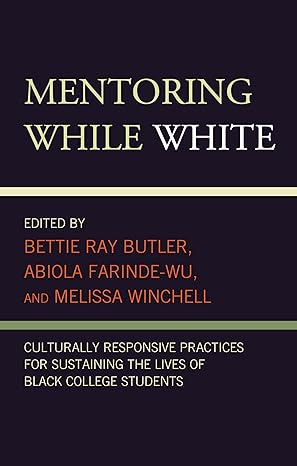How To Cure Racism
15 June 2025
The first in another new series of short articles, this one is where we take a quick look at things that make you say “er… what?”. We’ve all seen them. Baffling, self-contradictory ideas, bizarre statements and opinions promoted as if they are sage wisdom, you know the sort of thing.
Obviously in the Current Year™ there is a near infinite pool of material to select from, but we’ll start with this.

So, I should preface this short article with the statement that I absolutely agree racism is a bad thing. I absolutely agree that treating another person or group of people differently based on arbitrary characteristics like levels of melanin, geographical location etc. without considering the actual character and actions of the individual is a bad thing. I absolutely agree that interfering in the lives of people in other countries who’s culture, beliefs and practices may not align with our own is a bad thing. I absolutely agree that taking one’s culture, beliefs and practices to another country and expecting the population of that country to legally adopt, support and promote my culture, beliefs and practices over their own is a bad thing.
Yes, bad things have happened in the past, and continue to happen, specifically related to the above. The idea that the so-called “West” gets to push so-called “Western Values” on places like Africa, promoting abortions, vaccines and lifestyle choices in the name of “Philanthropy” and/or “Aid” is a bad thing. That idea, of hijacking a culture, homogenising it by breaking down distinct aspects of it and blending it with everything else in the name of Colonialism, Foreign Aid or Diversity, Equality and Inclusivity is as contradictory and hypocritical as it is destructive. When the boot is on the other foot so to speak, it is still bad.
Anyway, this is supposed to be a short article, but these are treacherous times and some people can get Very Offended if you say the wrong words, so in order to be absolutely clear on this, I am fine with the idea that people will form groups based on common interests, beliefs and so on, and provided that one group is not attempting to force anything on any other group, it’s all good, even if some groups have customs and practices that are not a preference of mine. Yes there are arguments to be made when a group appears to be doing other bad things. These are complex matters like all things relating to the human condition, but as a basic starting point, the non-aggression principle plus mutual respect of the rights of freedom to choose, freedom of speech etc. mean that no one group is above criticism, but at the same time no one group has the right to arbitrarily enforce their way of living on any other. Wading in with bombs and guns to “spread democracy” for example, is also a bad thing.
So, with all that in mind, a book titled “Mentoring While White: Culturally Responsive Practices for Sustaining the Lives of Black College Students” seems like a bit of a contradiction, especially when you take the stated goal of the book’s authors…
Mentoring While White: Culturally Responsive Practices for Sustaining the Lives of Black College Students provides a provocative and illuminating account of the mentoring experiences of Black college and university students based on their racialized and marginalized identities. Bettie Ray Butler, Abiola Farinde-Wu, and Melissa Winchell bring together a diverse group of well-respected leading and emerging scholars to present new and compelling arguments pointing to what white faculty should do to reimagine mentoring that seeks to sustain the lives of Black students by way of intentionality, reciprocal love, and transformative practice. This timely and relevant text takes a solution-oriented approach in offering direct guidance, promising strategies, and key insights on how to effectively implement culturally responsive mentoring practices that aim to improve cross-racial mentor-mentee relationships and post-school outcomes for Black students in higher education. It provides clear and immediate recommendations that can inform and positively shape mentoring interactions with Black women, men, and queer undergraduate and graduate students using innovative models that draw upon critical media and antiracist frameworks. The book is a must-read for anyone who currently mentors or desires to mentor Black college and university students.
https://www.amazon.co.uk/Mentoring-While-White-Culturally-Responsive/dp/1793629935/
Looking at that, one strange thing I noticed is the capitalisation of the word “Black”. Not just in the book title, but throughout the entire description. In my articles I sometimes capitalise certain words that perhaps grammatically or syntactically usually wouldn’t be, but that is generally for effect, highlighting the modern tendency to promote certain ideas or things, often to the point of deifying them.
In written English, usually we’d capitalise proper nouns (such as names of people, places, and specific organizations) and as I sometimes do, for effect (irony, comedy, contextual significance etc).
I have no idea what the motivation by the author of the description is to capitalise the word “Black”, but it seems kind of odd. I wouldn’t normally expect to see a white person described as a White person or previously a black person described as a Black person, but that’s likely because I don’t see the colour of a person’s skin as such a defining characteristic, perhaps at best an indicator of how well one might be able to market sun-cream to them.
A group of “scholars” have put together this 306 page guide that, if we take the title at face value, is not for white people, or even White people, but for people who are mentoring Black people While White. This sounds rather odd too. In my admittedly limited experience people have the same skin colour, in the sense of ethnic/racial categorisation for their entire lives. Sun-cream marketability aside, I have yet to see a white person get such a good sun-tan that they actually change to being a Black person. My suspicion is that is simply not possible, so the words “While White” seem rather strange given the definition of the word “while” which is usually used to convey a specific length of time.
An example of this would be that a person used a different name while undercover. Being undercover is a temporary condition. Being white, or any other skin colour is pretty much permanent unless you’re Michael Jackson. It almost seems like if they’d titled the book “Mentoring for White People” it would have seemed perhaps somewhat discriminatory, as if they were treating White People differently, singling them out from all other people, including other races that the “scholars” would likely not consider “Black”. Softening that to “While White” seems to my unscholarly mind a way of masking the clearly different treatment of white/White people to everyone else, which kind of sounds like racism, but obviously it can’t be that because this book is trying to stop racism, and luckily there has never been a time where people have tried to stop a thing by utilising or becoming the very thing they claimed to be stopping.
In completely unrelated news, a new Scientific Study suggests that just 7 hours a day using this revolutionary tool in your house completely eradicates any dampness you may be experiencing…

We definitely know this book is there to cure racism because the description also tells us…
Grounded in critical theories of race and emancipatory pedagogies, the authors push readers to contemplate the ways in which culturally responsive mentoring might help mitigate racial injustice inside and outside of higher education. We learn that as Black students resist hegemonic education, they inevitably further the promises of a multiracial democracy. Mentoring and cultivating a Black student are a privilege!
That word salad, ending with a sentence that does not make grammatical sense which chafes slightly seeing as this is all about “education”, says literally nothing. What is “culturally responsive mentoring” and why would that be considered the need of exclusively “Black” students? Surely if you’re against the idea of “hegemonic education” you’d want everyone to get the benefits of not being taught to dominate others? Just focusing that on “Black” students and allowing it for others seems like you’re setting them up to be permanent victims, or at least perceive themselves as such. Ah, I think perhaps I just answered my own question.
What are “the promises of a multiracial democracy”? Unless we are intent on homogenising all cultures into one big melting pot which is literally the antithesis to diversity, surely one has to recognise that for strong cultural groups with unique and disparate beliefs and customs to coexist then a one-size fits all approach is doomed to failure. You cannot run a “democracy” with a central Government where the views and wishes of such diverse groups can all be catered for, unless the Government is almost entirely hands-off and is only there to manage some very basic principles, but we absolutely know that isn’t the case.
The three credited authors are all associate professors at universities in the U.S. so it doesn’t seem like the previous lack of an instruction manual for people going through the seemingly transient state of Being White has held them back at all.
Again for the record, I am not making the case for any kind of mono-culture. It is simply the case that thousands of years of human existence and the observable fact that we tend to group ourselves based on commonalities that can indeed be so different as to be incompatible should tell us that any and all attempts to force the issue demonstrates either a profound lack of understanding, or betrays the more sinister objective where the end goal is to eradicate all the unique aspects of all cultures, including the positive ones all in the name of “tolerance”.
We’ll wrap up with one final observation as this is supposed to be a short article. The initial description we looked at contains the sentence:
It provides clear and immediate recommendations that can inform and positively shape mentoring interactions with Black women, men, and queer undergraduate and graduate students using innovative models that draw upon critical media and antiracist frameworks.
There was a time not that long ago where having people in places of education call their students “queer” would have got them frogmarched to HR for reprimand, re-education classes or simply fired. Luckily we’re in the Current Year™ and we now have books written by “scholars” insisting that’s now the right word to use because it can “positively shape mentoring interactions”.